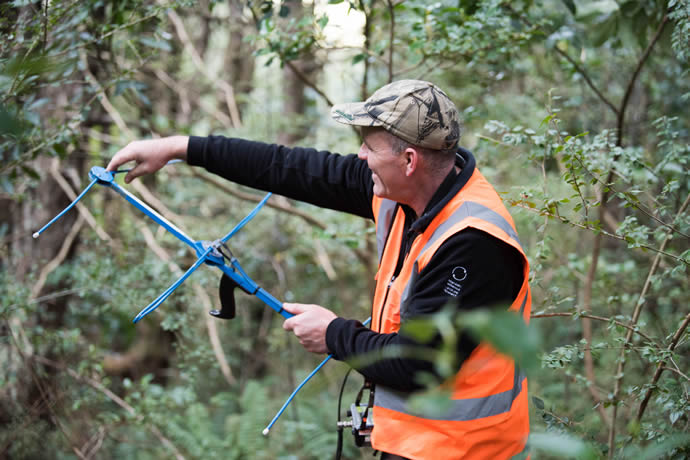Predator Free 2050
A new research programme has recently got underway aimed at eliminating the last predator survivors in New Zealand to help achieve the goal of Predator Free 2050.

Pest control targeting possums, rats and stoats with traps and poison can remove the vast majority of target animals, but a small proportion survive.
Eradicating these last survivors is crucial to achieving predator freedom. However, complete eradication is expensive and almost impossible to achieve on the mainland using current methods, because surviving animals are sparsely distributed and often wary of traps or poison baits, prompting the need for new methods and approaches.
 The newly funded five-year MBIE programme ‘Eradication Science: Eliminating the Last Survivors to AchievePredator Freedom’, led by Manaaki Whenua, will focus on achieving just that. The team will use recent advances in characterising ‘animal personality’ to develop a new understanding of individual animal behaviours that make surviving pest animals resistant to current control methods. This knowledge will help develop new lures specifically to manipulate survivor behaviours and to increase their interactions with control devices such as traps or bait stations.
The newly funded five-year MBIE programme ‘Eradication Science: Eliminating the Last Survivors to AchievePredator Freedom’, led by Manaaki Whenua, will focus on achieving just that. The team will use recent advances in characterising ‘animal personality’ to develop a new understanding of individual animal behaviours that make surviving pest animals resistant to current control methods. This knowledge will help develop new lures specifically to manipulate survivor behaviours and to increase their interactions with control devices such as traps or bait stations.
“We know survivors have some distinctive behaviours, such as bait shyness. Understanding these behaviours enables us to identify new lures and ways to attract these animals, such as using recorded animal calls, animal scents, or visual lures like artificial bird nests or LED lights,” says Programme Leader Chris Jones. “For these to be successful in the wild, we will explore the use of novel devices that use image recognition and artificial intelligence to recognise the approaching animal, to automatically present the appropriate lure for that species and behaviour type, and then deliver the appropriate kill mechanism,” he adds.
The programme will work with iwi and hapū to co-develop methods that are culturally acceptable to tangata whenua and draw on traditional and current knowledge about luring animals.
